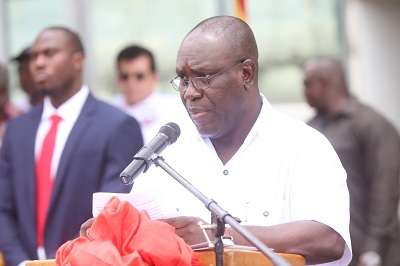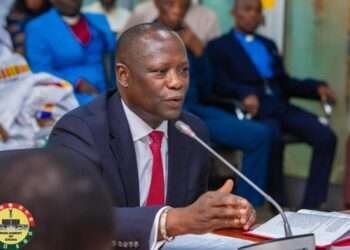Dr Yaw Baah, the Secretary-General of the Trades Union Congress Ghana (TUC), has disclosed that government must involve the leadership of Union bodies in negotiations and management of public agreements.
According to him, the Union has professional experts capable of working with government in negotiating contracts. This, he explained, the Union can undertake on behalf of the country to ensure value for money.
Dr Baah made this revelation at a TUC seminar on “Negotiation and Management of Public Agreements in Ghana – The Role of the Trade Unions”.
Additionally, he explained that the country was gifted with natural resources. However, poor contract negotiations had affected its fortunes in terms of development.
“Ghana has been mining gold over 120 years, but foreigners are making lot of money to the detriment of the citizenry. There is poor road infrastructure in most of these mining communities coupled with hunger and poverty”.
Also, Dr Baah called on Civil Society Organisations and other bodies to join the TUC to lead the process of creating the political will for government to involve key stakeholders in negotiating agreements.
Citing the Volta River Authority agreement in the 1960s, Dr Baah intimated that it was reviewed by Ghanaian experts like Professor George Akilakpa Sawyerr, an Academia, who got a better deal for the country.
Approval of contracts by MPs
That notwithstanding, he expressed disappointment over Parliament’s supposed approval of some contract documents without due diligence.
“It is worrying that some of these Parliamentarians approve these contracts because they do not understand the technicalities involved in the document while others do not have enough time to peruse the voluminous documents”.
On his part, the Director, Labour Research and Policy Institute, TUC-Ghana, Dr Kwabena Nyarko Otoo, touching on a “Research Analysis of Negotiation and Management of Public Agreement in Ghana,” insisted that from 2011 to 2016, the country had experienced extended blackouts – “dumsor”. According to him, this is predominantly as a result of generation problem of higher demand oversupply of energy.
By virtue of this, Mr Otoo explained that the generation, had since increased far in excess of energy demand. Following this, it currently has projections that no additional power generation would be needed until 2027.
Nevertheless, Dr Otoo indicated that the energy sector faced monumental challenges of the unreliability of power. Coupled with this, he cited mounting debts, rising tariffs and low investment as causes crippling the energy sector.
He further called for capacity building for government appointees on contract negotiations.
Rejection of bribery and corruption allegation
Prior to this, the Ranking Member of Parliament’s Mines and Energy Committee, Adam Mutawakilu had rejected bribery and corruption allegations made against Members of Parliament in the approval of the AKSA Energy deal.
The U.S. Securities and Exchange Commission had earlier charged Mr Berko, for arranging at least $2.5 million in bribes to be paid to Ghana Government officials and MPs between 2015 and 2016.
The alleged bribes were reportedly to help a Turkish company secure a power purchase agreement deal in Ghana back in 2015 amid the power crisis.
Though there are no details yet on the nature of Mr Berko’s engagement with Parliament, M. Mutawakilu has come out to say the Mines and Energy Committee had no direct dealings with the accused.
“I want to state emphatically that nothing of that sort happened and Parliament never received anything with respect to performing our legitimate duties as to the passing of the power purchasing agreement. It wasn’t only his but we passed several agreements but there was no situation where there were any underhand dealings”.
Read Also: Galiano Gold realizes $95.1 million in revenue for Q2 2021




















